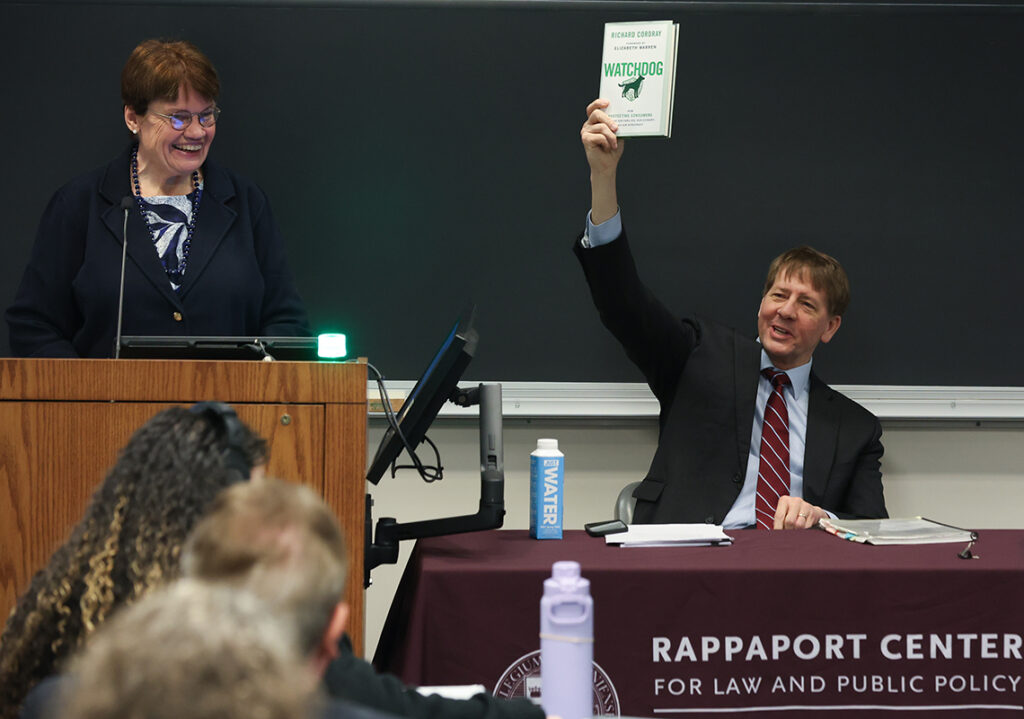On February 12, the Rappaport Center hosted Richard Cordray, the former Ohio Attorney General and a 2020 Rappaport Distinguished Visiting Professor, for a community-wide address on the history and uncertain future of the Consumer Financial Protection Bureau (CFPB), where he served as its inaugural director.
In her introduction, BC Law Professor Patricia McCoy, a colleague of Cordray at the CFPB during its early years, described his achievements there as “legion.” He had the weighty responsibility of creating a brand new agency from nothing while cleaning up the mess of the 2008 financial crisis, which devastated millions of families through both job losses and foreclosures. McCoy pointed out that during his six years on the job, he returned over $12 billion in financial relief to injured consumers, handled over 1.3 million consumer complaints that resolved many people’s consumer problems, and adopted major new rules to protect them.
In his talk, Cordray provided further information about the CFPB’s creation in response to an unsteady economy in the early 2000s—much of it captured in his book Watchdog: How Protecting Consumers Can Save Our Families, Our Economy, and Our Democracy—and spoke of what may become of the bureau next.
The CFPB emerged from the fallout of what began as a mortgage crisis, turned into a financial crisis in 2008, and finally led to a recession in 2010. Part of the problem, Cordray explained, was that mortgages were not a regulated product at the federal level in any meaningful way. The states started regulating them, he said, “because nobody else was.”
The efforts of the states gained momentum, and Congress started to take notice, seizing on a journal article written by then-Harvard law professor Elizabeth Warren, who suggested a consumer agency at the federal level. Warren, who became special advisor to the President and special advisor to the Secretary of the Treasury, was soon called on to help create that very agency, the CFPB. “That is a very unusual thing in the federal government to actually create a brand new agency from scratch,” Cordray noted. He was personally recruited by Warren in 2010 to become head of Enforcement for the Bureau, and soon tapped by President Obama to become the CFPB’s first director.
The CFPB demonstrated the push-pull of federalism: Congress was not satisfied to have only states trying to manage an area that had already caused so much damage to the country. They wanted a federal response. And, at a time when Democrats held a majority in both houses and the presidency, Congress was able to accomplish their goal.
Photograph by Reba Saldanha


